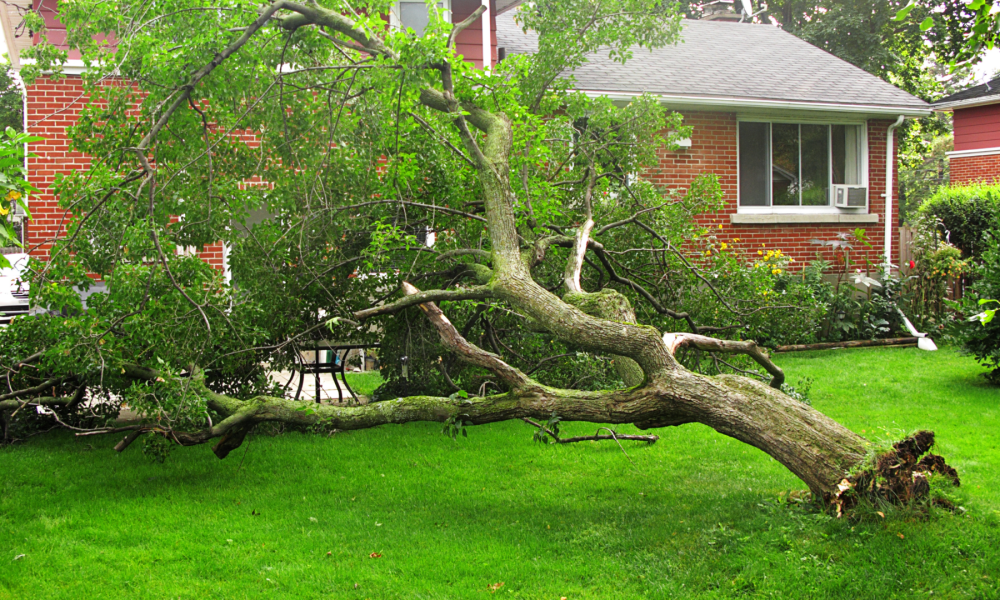Many people have trees on their property. They provide shade and complement landscaping nicely, but they can also cause major disputes when they fall over.
A tree may topple over if it is not properly maintained, it’s diseased or a storm knocks it down. When a tree falls over onto a neighbor’s property, a homeowner is often left to wonder if they are liable.
Most people assume that they are since it is their tree. However, this is not always true.
When a tree falls over onto a neighbor’s property, that person should submit a claim to their insurance company immediately. The insurer is usually responsible for taking care of the damages. This is true if the tree fell over due to an act of nature.
For example, a healthy tree that falls over during a tornado, hurricane, windstorm or winter storm would not be the responsibility of the homeowner. Since the homeowner living on the property where the fallen tree was rooted didn’t intentionally push the tree over, nature is responsible. This means that the neighbor’s insurance policy should cover it.
However, there are some cases where you as a homeowner could be held liable. If a tree fell on your neighbor’s home when you were cutting it down, the damage would be your responsibility.
Also, if the tree was dying, unstable or diseased and you knew about it, you could be liable if it falls over on its own. You could also be liable if it falls over during a very light storm that would not normally knock over a tree.
When homeowners know they have dying, diseased or unstable trees, it is their responsibility to take steps to prevent them from causing severe damage.
In the event a homeowner is liable for the damages, their homeowner’s insurance policy will have to pay the damages. The insurer will investigate the claim and defend the homeowner if they are sued by the neighbor whose property the tree fell on.
The best way to avoid a lawsuit is to prevent it in the first place. Check your trees regularly and have them inspected at the first sign of disease or any health issues. You should also trim back branches that grow over the fence line.
A professional arborist can analyze the tree to see if it needs any special treatments, pruning or complete removal. This may seem like an unnecessary expense, but it is much less expensive than the potential cost of paying for a neighbor’s home being damaged and the legal costs that ensue. For those who plan to stay in their homes for any length of time, it is best to try to keep the peace with neighbors, so this is also a good way to prevent quarrels or ongoing problems.



